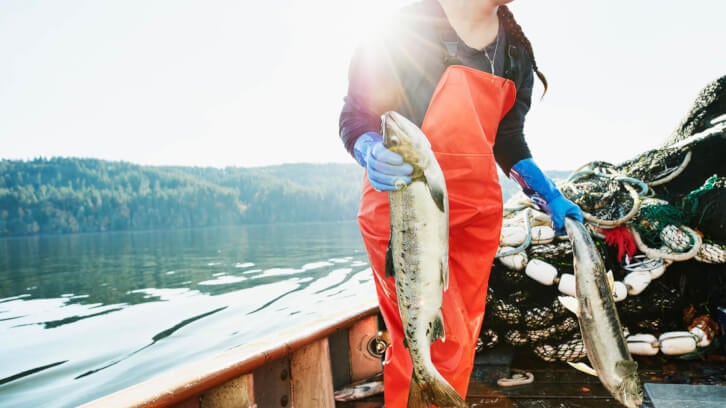The achievement involves the certification of Grøntvedt’s branded CETO3 omega-11 and omega-3 products, which are produced using Norwegian pelagic fish with immediate processing from fish to oil in 30 minutes enabling for high omega contents and limited lipid oxidation. The efficient processing techniques, as well as the company’s stringent traceability methods, led to the recognition.
Bjørnar Grøntvedt. CEO of Grøntvedt, commented: “Sustainability is very important for Grøntvedt Group, our customers, and their consumers. As Grøntvedt is a 7th generation Pelagic fish company, a sustainable operation is core of our values and we are now able to support customers with a credible sustainability ecolabel with Friends of the sea certification.”
Certification requirements
The ‘Friend of the Sea’ certification requires companies to pass an audit to verify its production compliance within specific requirements. These first state that the omega-3 product must originate from trimmings or by-cuts of the seafood processing or from approved fisheries.
If utilising the whole fish, the fishery must target a non-overexploited or endangered species, manage waste, be energy efficient, and be managed considering the impact on the ecosystem.
Henriik Traholt, chief commercial officer at Grøntvedt, explained their compliance to these standards: “Grøntvedt Biotech produce the oil from trimmings after food production, in a high tech, energy saving, state of the art facility. The key is documenting full traceability back to the origin of the fish, where Grøntvedt have full control on each batch, origin of the fish, area of fishing and fishing vessel utilized.”
Traholt explained that the entire fish is used in the production process, with 40% used for human food and the trimmings immediately processed in a human grade production line into fish oil.
“This operation is a low carbon footprint operation as it takes place at the same location. Our fishery is also controlled by Norwegian fishing authorities and fished under Norwegian license,” he added.
He emphasised the current importance of sustainable fishing practices with rising demands and climate challenges.
“With increasing oil demand in the aquaculture-, petfood- and human consumption-market, we need to utilize resources better to fill the gap that in future will arise.
“Omega-3 oil from seafood by-products, like CETO3 from trimmings, will therefore be an important supplement/complementary resource of oil beside the anchoveta oil,” he stressed.
Health benefits
Traholt explained the health benefits of the CETO3 product, which contains both omega-11 and omega-3: “We focus on the benefits of Omega-11 (Cetoleic acid), as it has proven to stimulate the body’s own ability to produce EPA/DHA converting it from ALA.”
He pointed out a newly conducted, as yet unpublished, human pilot trial involving the administration of two 1000mg capsules of either the CETO3 product or a fish oil supplement, which containing 50% more EPA/DHA.
Following analysis at Grøntvedt’s partner labs at the University of Sterling in the UK, the research reported that there were increases in the body’s own production of EPA and DHA by up to 50% following intakes of the CETO3 supplement.
Traholt said that the company is now focussing on launching the CETO3 into the global market, whilst investigating new innovations with their access to marine raw materials.

